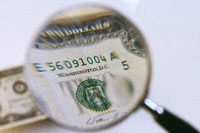Europe, Japan and USA To Trigger Major Debt Crisis
The world may face another crisis of confidence, this time in the governments of continental Europe, Great Britain, Japan, and the USA. According to Christophe Bernard, managing director of one of the largest Swiss banks, Union Bancaire Privée (UBP), these countries risk suffering a defeat in restructuring their external debt. This could happen because their debt burden could grow to up to 20-30% of their budgets. Market participants interviewed by RBK Daily believe that this scenario is likely, but hope that regulators in these countries will not make it happen.

Christophe Bernard thinks that there are a number of global risks that seem unlikely now, but could come true in the next two to three years. Giving his speech at the Russian CFO Summit organized by Adam Smith Institute on 27-30 October 2009 in Moscow, he mentioned that last summer bankruptcy of Leman Brothers seemed unbelievable.
Christophe Bernard is worried that external debt of the leading developed countries can grow from 10 percent (on average) to 20-30 percent of their budget. This will cause inability of the governments to service their foreign currency debts at the current interest rates. As a result, leading countries of the European Union, Japan, Great Britain and then the USA will not be able to restructure their debt burden and will lose trust of both creditors and investors. Bernard told in an interview to RBK Daily that the new crisis of confidence will be channeled not towards certain banks and companies, but entire governments. This scenario is scary, and the governments of these countries are trying to avoid excessive growth of their debt burden.
Evgeny Gavrilenkov, Chief Economist of Troika Dialog Group, also thinks that this scenario is realistic. He reminded that Russia had similar experience in 1997-1998, when the government could not pay its external debts and defaulted. He added that in the next few years, a combination of various factors can make this risk quite realistic, although the regulators in these countries are trying to do everything they can to avoid it.
The question is which assets could become low risk for investors. Christophe Bernard believes that the US dollar could lose another 20-30 percent of its value. He thinks that US dollar crisis is possible and there can be a situation when one of the leading countries challenges the stability of the American currency.
Evgeny Gavrilenkov said that any budget deficit will be sooner or later monetized. He suggested that devaluation has already started in a number of countries. Gavrilenkov thinks that devaluation of the US dollar or other world currencies by 20-30 percent could easily happen within six months. “We’ve seen it happen not only to the US dollar but Japanese yen as well. Therefore, weakening of currencies by 20-30 percent is not that significant and should not be paid attention to.”
According to Bernard, the threat of devaluation of the US dollar will cause high value of real assets, such as commodities, shares of respective companies, and currencies of the countries that have these commodities (Australian dollar, Norway crown, and Canadian dollar). He thinks that real estate is a doubtful asset excluding real estate of certain countries in the Asian region. Bernard is convinced that oil is currently overestimated, and should be priced at $55-50 per barrel. He would not recommend investing in oil on a short-term basis. On a long-term basis, however, prices could show significant growth.
Senior Economist of Merrill Lynch Securities Bank of America, Julia Tseplyaeva agrees with the evaluation of the Swiss banker. Crisis of confidence in the governments of the leading countries is possible if they continue growing their expenses by means of new large-scale borrowings. However, Tseplyaeva doubts that these governments intend to increase their debts at the same rate they were doing it during the crisis.
RBK Daily
Subscribe to Pravda.Ru Telegram channel, Facebook, RSS!



